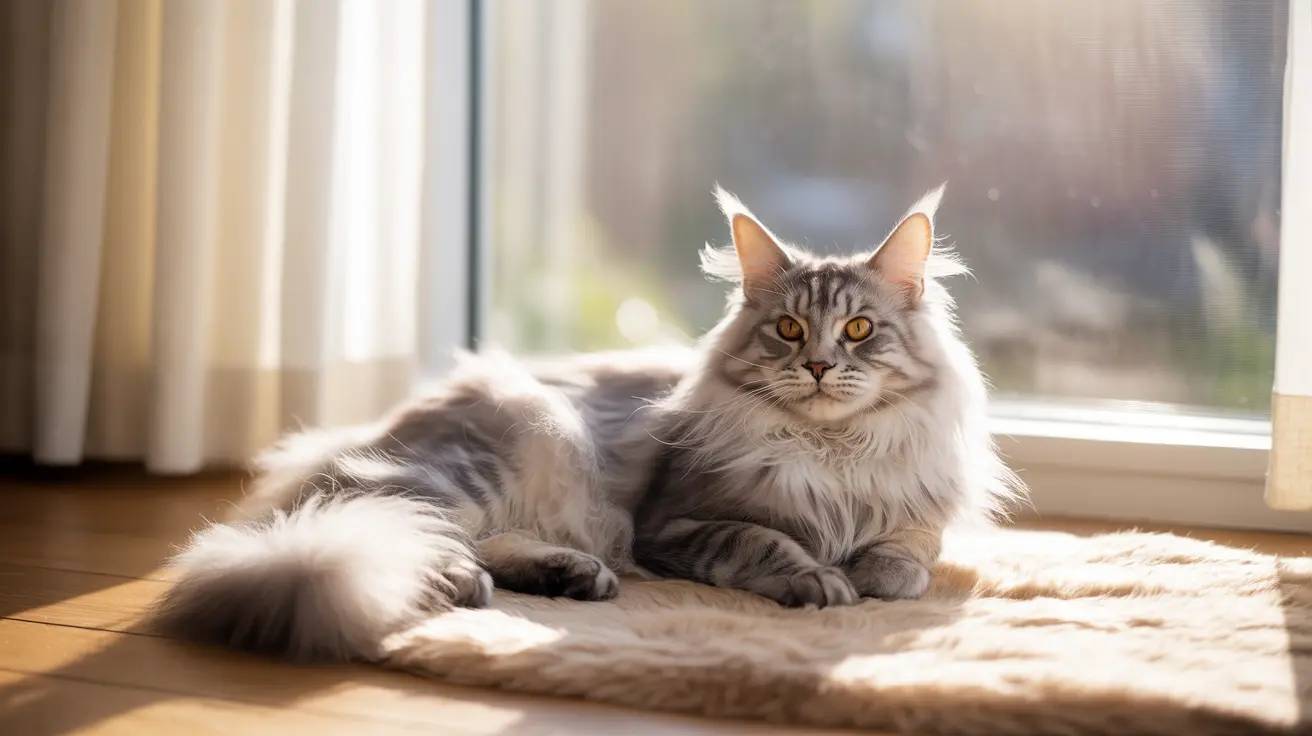The Science Behind Cat Purring
Before diving into why some cats don't purr, it's essential to understand how purring works. Cats produce their characteristic purr through rapid muscle movements in their larynx, occurring 25-150 times per second. This rhythmic movement, controlled by neural signals from the brain, creates the familiar vibrating sound we know as purring.
The ability to purr develops early in a cat's life, typically within days after birth, and plays a crucial role in mother-kitten bonding during nursing.
Common Reasons Why Cats Don't Purr
Natural Variation and Individual Personality
Just like humans have different ways of expressing themselves, cats have unique communication preferences. Some cats naturally prefer other forms of expression, such as meowing, trilling, or body language, over purring.
Many cats actually do purr but so quietly that their owners can't hear it. You might need to place your hand gently on your cat's throat or chest to feel the vibrations.
Early Life Experiences and Socialization
Cats who were separated from their mothers too early or grew up as ferals might not have learned to purr as a regular form of communication. This early life experience can significantly influence their vocal behaviors into adulthood.
Similarly, cats who spent their early weeks in challenging environments might have learned to stay quiet for survival, carrying this habit into their domestic life.
Physical and Health-Related Factors
Anatomical Differences
Some cats may have natural variations in their laryngeal structure or vocal apparatus that affect their ability to purr. These anatomical differences don't necessarily indicate a health problem – they're simply part of what makes each cat unique.
Medical Conditions
In some cases, the inability to purr might be related to health issues such as:
- Laryngeal disease or injury
- Vocal cord damage
- Upper respiratory infections
- Throat inflammation or infection
If your cat suddenly stops purring when they used to purr regularly, it's worth consulting with a veterinarian to rule out medical concerns.
Alternative Ways Cats Show Contentment
Cats have many ways to express happiness and comfort besides purring:
- Slow blinking or "cat kisses"
- Rubbing against you or head-butting
- Kneading with their paws
- Relaxed body posture
- Following you around
- Sleeping near you
Frequently Asked Questions
Why doesn't my cat purr even when it seems happy and relaxed?
Some cats naturally express contentment through other behaviors like slow blinking or kneading rather than purring. Each cat has its unique way of showing happiness, and not purring doesn't mean your cat isn't content.
Can a cat be healthy and content without purring?
Yes, absolutely! Many healthy and happy cats rarely or never purr. As long as your cat shows other signs of wellbeing, such as good appetite, normal activity levels, and positive social interactions, the absence of purring isn't concerning.
How can I tell if my cat is purring if I can't hear it?
Place your hand gently on your cat's throat or chest area when they're relaxed. You might feel subtle vibrations even if you can't hear the purr. Some cats purr so quietly that the sound is barely audible.
Could my cat's lack of purring indicate a health problem or vocal cord injury?
While it's possible, if your cat has never purred, it's likely just their natural tendency. However, if a usually vocal cat suddenly stops purring, especially along with other behavioral changes, consult a veterinarian to rule out health issues.
What are the reasons some cats never learn to purr or stop purring suddenly?
Cats might never learn to purr due to early weaning, feral upbringing, or natural disposition. Sudden cessation of purring could be due to stress, illness, or environmental changes. Always monitor for additional behavioral changes if purring patterns shift unexpectedly.
Conclusion
Remember that every cat is unique, and not purring is often completely normal. Focus on understanding your cat's individual communication style and watching for their personal ways of showing contentment and affection. As long as your cat is healthy, active, and showing other signs of happiness, their lack of purring is simply part of what makes them special.






